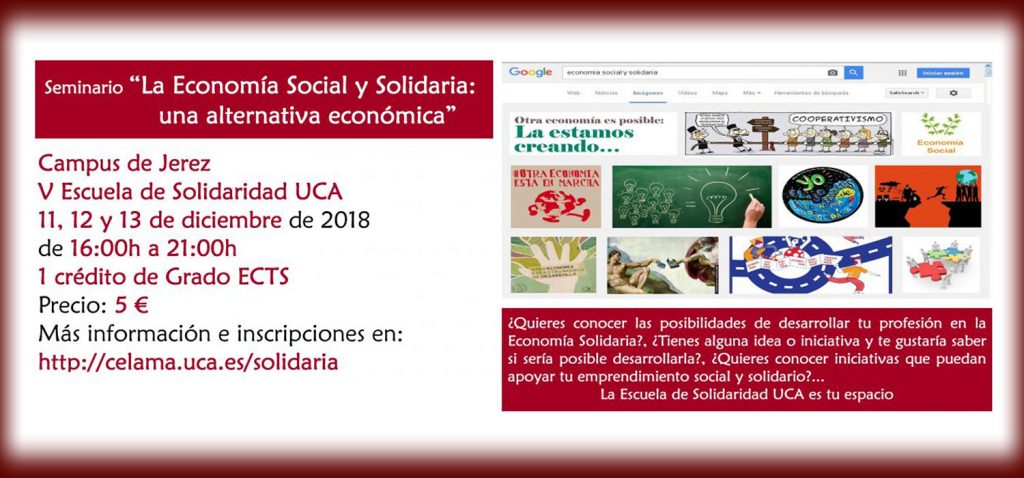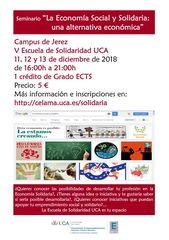Del 11 al 13 de deciembre de 2018, de 16:00h a 21:00h se celebra en el Campus de Jerez el Seminario “La Economía Social y Solidaria: una alternativa económica”.
Se ha solicitado 1 crédito de grado ECTS por la participación en este seminario. Para obtener el diploma de asistencia se requiere asistir al 100 % de la actividad, para obtener el certificado de créditos se requiere la misma asistencia y realizar un trabajo ensayo personal sobre la temática tratada.
Contenidos:
- ¿Qué es la Economía Social y Solidaria (ESS)?, ¿Qué la diferencia de la Economía actual, tal y como la conocemos?.
- Principios, objetivos y ámbitos de actuación de la ESS.
- ¿Qué actividades económicas pueden desarrollarse en la Economía Social y Solidaria?
- Las empresas sociales, las cooperativas, las empresas de inserción: estructura, funcionamiento, viabilidad, financiación…
- ¿Cómo sabemos si podemos desarrollar nuestra profesión en la Economía Social y Solidaria?
- La ESS en Andalucía. Ejemplos de organizaciones, mercados y redes.
- La Economía Social y Solidaria y la administración.
Más información e inscripción en https://celama.uca.es/solidaria



